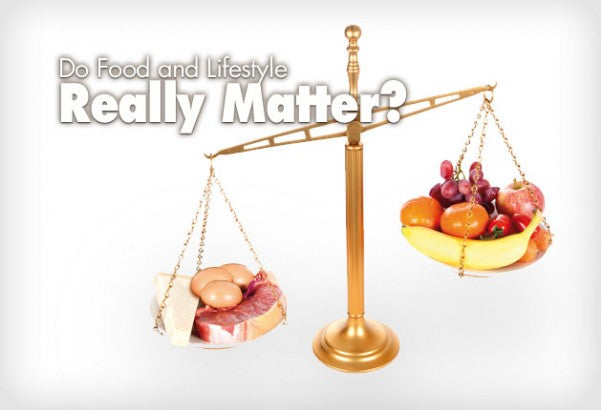The next time someone — God-forbid your doctor — tells you that food does not play a role in chronic disease, kindly ask them to read the research.
Researchers in Jordan have just published their findings on how food affects health. Their conclusion?
"Foods do certainly play an important role in human health."And, we might add, their most powerful statement of all was, "...chronic disease including diabetes, hypertension, and obesity were more prevalent among non-vegetarians compared to vegetarian respondents." Now, this wasn't just a war of words about which food was better than another. The researchers quoted several studies which all found a vegetarian diet to be more beneficial in terms of lifestyle, body mass index (BMI), etc. Specifically, BMI — typically used by health insurance companies to predict your likelihood of chronic disease — was found to be "highest in meat-eaters and lowest in vegans" according to one of the studies quoted. Another went so far as to say that "vegetarians are more 'health conscious' than non-vegetarians" and yet another found that "mortality from ischemic heart disease was 24% lower in vegetarians than in non-vegetarians." The research performed by the team in Jordan only served to strengthen the results of these other studies. They compared 97 vegetarians to 97 non-vegetarians and found "lower prevalence of diabetes, obesity, and hypertension among vegetarians than non-vegetarians" amounting to "statistically significant differences." Their bottom line?
"Overall, a vegetarian food lifestyle is recommended to decrease the probability of chronic diseases for healthy people."It's no wonder we receive testimonies every day from people who have used the vegan principles of The Hallelujah Diet to enable their immune system to heal from life-threatening diseases. It's simply what the human body is designed for. So, to answer the question... Do food and lifestyle really matter? Yes. Any other questions?
What do you say to people when they challenge your vegan diet?






